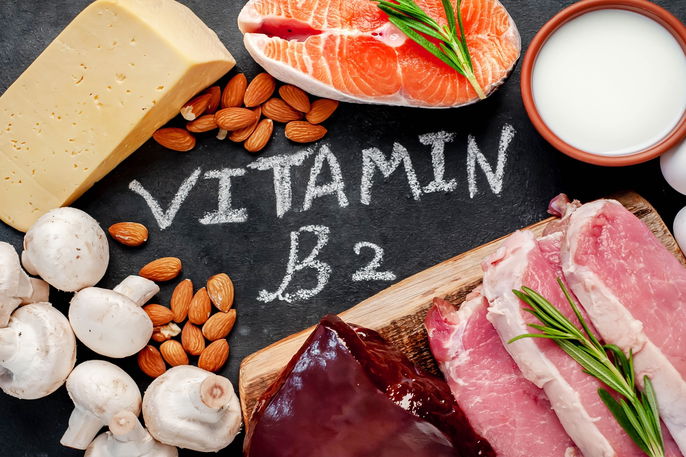Riboflavin, or vitamin B2, is a vitamin that is essential for several functions in the body, such as stimulating blood production, increasing energy, promoting growth during childhood and tissue repair.
Riboflavin also helps prevent the onset of cardiovascular diseases and migraines, as this vitamin has antioxidant and anti-inflammatory activities.
Riboflavin is naturally present in foods such as milk, yogurt, eggs, beef liver, soybeans and peas. In addition, vitamin B2 can also be found in the form of capsule supplements.

Health benefits
Vitamin B2 is important for the following functions in the body:
- Boosting energy production, as it participates in the metabolism of carbohydrates, proteins and fats in the body;
- Stimulating blood production, as vitamin B2 is important for the formation of red blood cells;
- Preventing cardiovascular diseases, because it regulates the levels of homocysteine in the blood, an amino acid that, in large quantities, increases the risk of heart disease;
- Facilitating growth in childhood and wound healing, as it plays a fundamental role in the formation and repair of cells and tissues;
- Relieving migraines, due to its antioxidant and anti-inflammatory action that helps to combat and prevent migraines;
- Maintaining thyroid health, as it regulates thyroid enzymes.
Vitamin B2 is also important for working together with other B-complex vitamins, such as vitamins B6, folic acid and vitamin B12, to ensure optimal functioning of other bodily processes.
Foods with riboflavin
Riboflavin is found mainly in brewer's yeast and foods of animal origin, such as milk, cheese, yogurt and beef liver.
This vitamin can also found in plant-based foods, such as oats, mushrooms, soy and watercress.
Recommended daily amount
The recommended daily amount of vitamin B2 varies depending on the person's age, stage of life and sex:
Breastfeeding women should consume 1.6 mg of vitamin B2 per day. For pregnant women, the recommended amount of vitamin B2 per day is 1.4 mg.
When to use supplements
Riboflavin supplements may be indicated for conditions that can increase the risk for a deficiency in this vitamin, such as alcoholism, older age, pregnancy, diets low in riboflavin or use of medications like oral contraceptives, probenecid, chlorpromazine, phenothiazines, barbiturates, streptomycin and penicillin.
This supplement can also be recommended for people with abnormalities with intestinal absorption, or people with a history of diseases such as HIV, tuberculosis, hyperthyroidism and diabetes.
Vitamin B2 supplements can be found in the form of capsules, ranging from 10 to 500 mg. Doses are prescribed depending on the person's age and health goals. Therefore, vitamin B2 supplements should only be used as directed a doctor or registered dietitian.
Vitamin B2 deficiency
Vitamin B2 deficiency can cause signs and symptoms such as inflammation, sores on the lips, red or swollen tongue, red or itchy eyes, tiredness, hair loss, delayed growth, sore throat, skin irritation and anemia






























